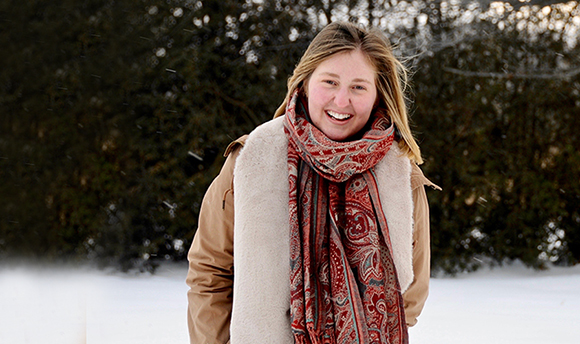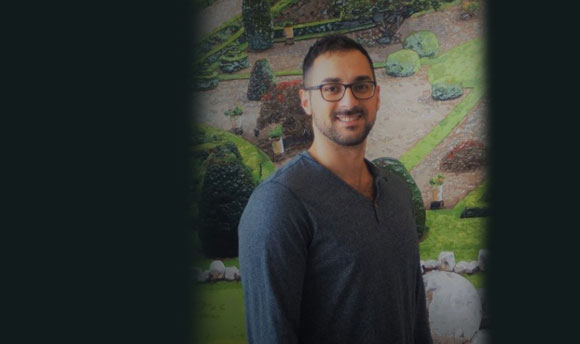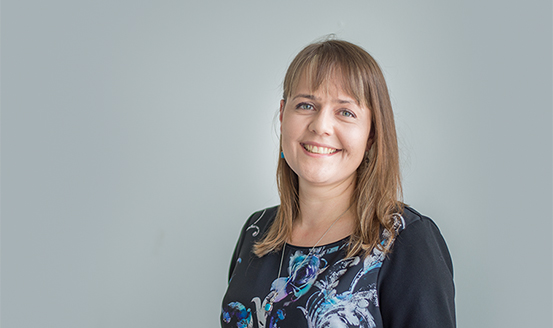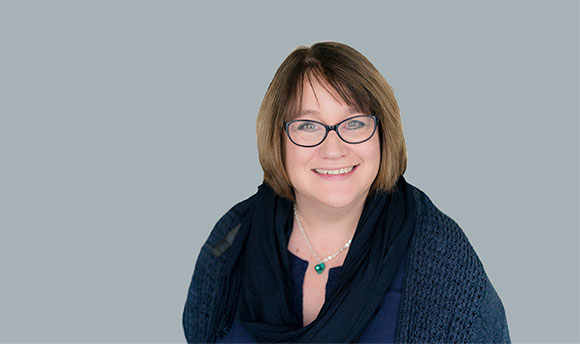Please note that applications for International students (only) closed on March 31st.
Audiology (Pre-Registration) - MSc
This MSc in Audiology (Pre-Registration) course provides a fast-track route to an audiology qualification for individuals who hold a degree (or equivalent) in a related discipline (linguistics, psychology, physics, behavioural science, biological science, speech and language therapy or some combination of these).
The course provides students with the theoretical knowledge and clinical skills required to register with the Academy for Healthcare Science (AHCS) Clinical Physiology Register and to work as an Audiologist in the NHS.
The course is also popular with international students who require a postgraduate qualification that will enable them to promote and develop audiological services in their home countries.
NB This course will run dependent on numbers and placement availability.
Why QMU?
- Placements allow you to put theory into practice: Students will learn the importance of using scientific principles to underpin their clinical practice. This course includes 34 weeks of structured clinical placement, which will normally take place in an NHS Audiology department in Scotland.
- Specialist facilities: Practical skills are taught on campus, where students have access to a wide range of specialist equipment.
- Professional registration: The course provides graduates with eligibility to register with the Academy for Healthcare Science (AHCS) Clinical Physiology Register in the United Kingdom.
Why choose a career in audiology? (Viewpoints of audiology practitioners.)
Audiology (Pre-Registration) - MSc: More information and what you will achieve
Audiologists work with adult and paediatric patients to identify and assess hearing and/or balance disorders, recommending and providing appropriate rehabilitation and management.
Our aim is to equip you with the knowledge and skills necessary to practise audiology. In order to achieve this aim, we offer a range of learning experiences, allowing you to develop skills, both independently and in a group setting.
The MSc in Audiology course comprises 12 modules. Within these modules you will study supporting subjects - linguistics, anatomy, physiology, psychology, neurology and research methods - and acquire theoretical knowledge relating to hearing and balance. Knowledge and skills acquired in theoretical modules are integrated and applied to clinical practice throughout the course. Through university-based practical sessions and your practice placement, you will develop clinical skills, clinical decision-making and reflective practice, as well as gaining an understanding and awareness of a variety of professional issues.
How will I be taught?
Structure and exit awards
On completion of the full MSc (280 credits) or a PgDip (220 credits), you will be eligible to register as an Audiologist with the Academy for Healthcare Science (AHCS) Clinical Physiology Register .
Teaching, learning and assessment
We take a “blended” approach to learning and teaching, with modules delivered through a combination of online and on campus lectures, seminars and clinical skills sessions. We are aware that is can be costly for students to travel to the university campus on a daily basis and find that our postgraduate audiology students prefer to have as flexible a schedule as possible. Students are required to attend the university campus for clinical skills sessions. Some lectures and seminars are delivered on campus but many are delivered online. Online teaching may be synchronous (using virtual classrooms) or asynchronous (recorded lectures, directed reading and online discussion boards).
Assessments take a variety of forms, including essays, individual presentations, electronic portfolios, group discussions, case studies, practical skills and a research dissertation.
Placement
This course includes a 34-week practice placement in a clinical setting. This normally begins at the beginning of Semester 2, in Year Two of the course. Placements are normally in Scotland and are allocated by the placement team, based primarily on the availability of sites.
Teaching hours and attendance
Each module will require you to attend classes (both online and on campus) and to carry out independent work. Your attendance at QMU will depend on which module you are studying. Where possible, the taught elements of this course occur over three consecutive days each week. The other days are used for independent study.
Class sizes
Class sizes are normally 12 - 15 students.
Teaching staff
You can read more about the teaching staff on this course at the bottom of this page. Please note that teaching staff is subject to change.
Modules
- Audiological Science (40 credits)
- Audiological Assessment (40 credits)
- Linguistics and Culture in Signed and Spoken Languages (20 credits)
- Adult Aural Rehabilitation (20 credits)
- Paediatric Aural Habilitation (20 credits)
- Vestibular Assessment and Rehabilitation (20 credits)
- Advanced Audiological Assessment (20 credits)
- Multidisciplinary Working (20 credits)
- Enquiry Based Learning (20 credits)
- Dissertation (60 credits)
Level 10 modules (non-credit-bearing):
- Clinical Skills and Professional Practice for Audiology
- Clinical Placement
The modules listed are correct at time of posting (October 2023) but are subject to change. In the event that modules change, QMU will seek to use reasonable endeavours to ensure that there is no detrimental impact on students.
Career opportunities
Graduates may work within the National Health Service and/or private sector. A further assessment is required in order to work as a registered Hearing Aid Dispenser. There are also career opportunities for research in universities and research institutes.
Audiology (Pre-Registration) - MSc: Entry requirements and application information
Entry requirements
An upper second class honours degree or above in a science or related subject (eg mathematics, physics, biological sciences, psychology, linguistics, speech and language therapy) is normally required.
International: You will be required to provide evidence of English language competence at no less than IELTS 7.0 with no individual component score below 6.5
Other requirements
A satisfactory criminal records check from the Protection of Vulnerable Groups (PVG) Scheme, an occupational health check and personal indemnity insurance (normally through membership of the professional body) are required.
Other costs
- The cost of professional indemnity insurance is the responsibility of the student. For more information on this, visit the PG 2024 fees page on our website.
- The additional costs associated with placement travel and accommodation are the responsibility of the student. Students who receive SAAS funding may be able to claim for some of these expenses to be reimbursed.
- Uniform, PVG and badge costs – please see PG 2024 fees page on our website.
Disability/health conditions
If you have a disability, long-term physical or mental health condition, or learning disability, it should not stand in the way of your studying at QMU. However, if you are not sure whether your disability might be a barrier in your studies or in relation to the professional standards, please contact the disability service who will be able to have a conversation with you about reasonable adjustments and supports available to you.
Applying for this course
For more information on applying, or to apply for this course, please follow the links in the 'Start your application' box at the top right of this page.
Application deadline
Home: Application is still open to home students.
International: Application is now closed to international students.
Terms and Conditions
The delivery of this course is subject to the terms and conditions set out in our 2024/25 Entry - Terms and Conditions (Postgraduate).
More information and QMU contacts
Opportunities to meet us
What industry experts say
"The reason why I like the profession is you can take somebody and in an hour you can pretty much change their life"
Dave Wood (QMU graduate and industry expert)
"A lot of us see audiology as solving a puzzle"
Stephanie Doody-Orr (industry expert)
"If you're working with the NHS, it's a good outpatients clinic, 9 to 5, Monday to Friday, so you have your evenings off and your weekends off!"
Stephanie Doody-Orr (industry expert)
Become your best you: study at QMU
Course Overview
Engage with the Team
A student Story (see bottom of page for more)
Join us at one of our Postgraduate Open Events
Find out about online and in-person opportunities to meet with us to find out more about our postgraduate courses and study at QMU.
Postgraduate Open Events - More Info and Bookings









